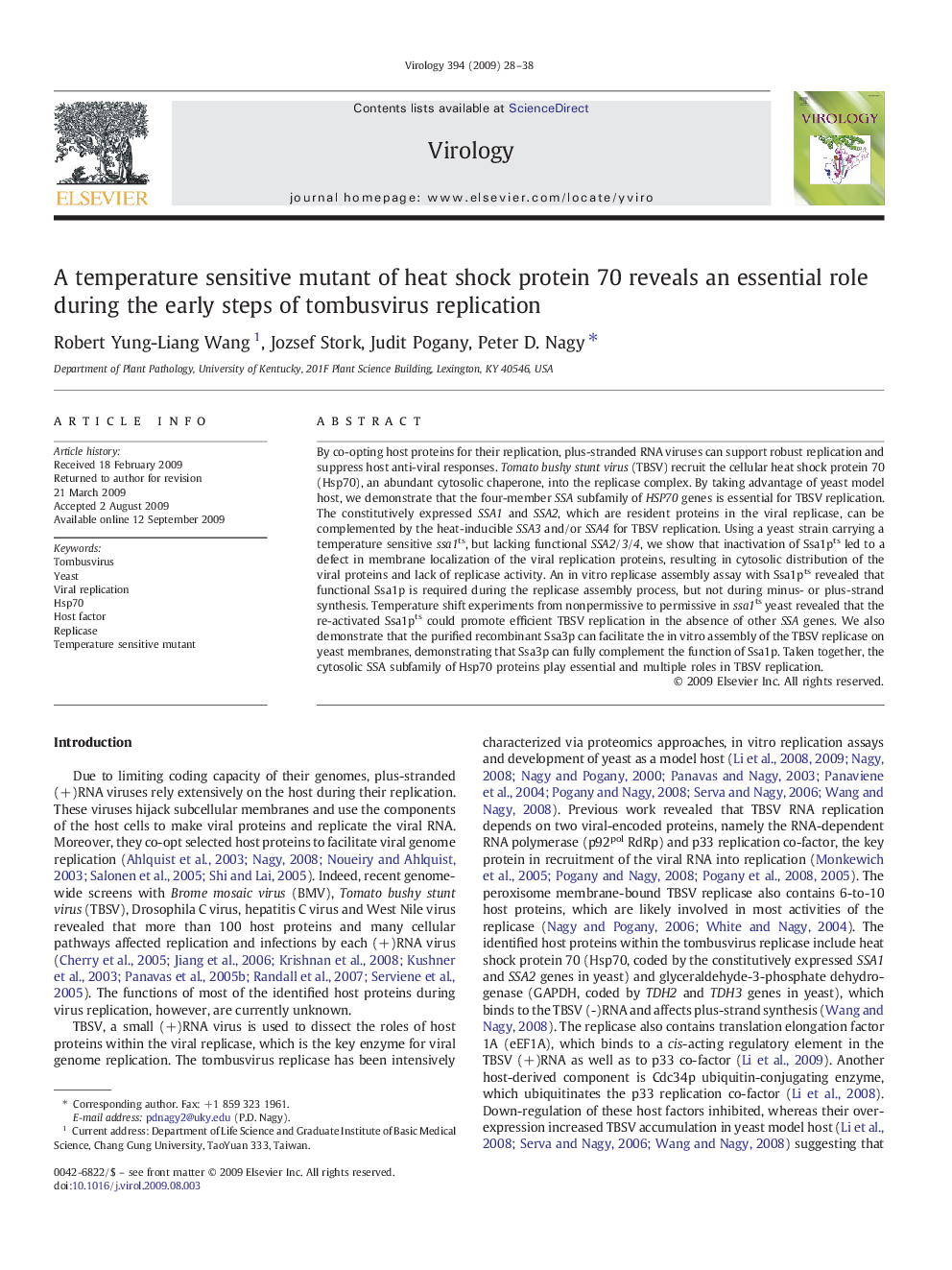| Article ID | Journal | Published Year | Pages | File Type |
|---|---|---|---|---|
| 6141781 | Virology | 2009 | 11 Pages |
Abstract
By co-opting host proteins for their replication, plus-stranded RNA viruses can support robust replication and suppress host anti-viral responses. Tomato bushy stunt virus (TBSV) recruit the cellular heat shock protein 70 (Hsp70), an abundant cytosolic chaperone, into the replicase complex. By taking advantage of yeast model host, we demonstrate that the four-member SSA subfamily of HSP70 genes is essential for TBSV replication. The constitutively expressed SSA1 and SSA2, which are resident proteins in the viral replicase, can be complemented by the heat-inducible SSA3 and/or SSA4 for TBSV replication. Using a yeast strain carrying a temperature sensitive ssa1ts, but lacking functional SSA2/3/4, we show that inactivation of Ssa1pts led to a defect in membrane localization of the viral replication proteins, resulting in cytosolic distribution of the viral proteins and lack of replicase activity. An in vitro replicase assembly assay with Ssa1pts revealed that functional Ssa1p is required during the replicase assembly process, but not during minus- or plus-strand synthesis. Temperature shift experiments from nonpermissive to permissive in ssa1ts yeast revealed that the re-activated Ssa1pts could promote efficient TBSV replication in the absence of other SSA genes. We also demonstrate that the purified recombinant Ssa3p can facilitate the in vitro assembly of the TBSV replicase on yeast membranes, demonstrating that Ssa3p can fully complement the function of Ssa1p. Taken together, the cytosolic SSA subfamily of Hsp70 proteins play essential and multiple roles in TBSV replication.
Related Topics
Life Sciences
Immunology and Microbiology
Virology
Authors
Robert Yung-Liang Wang, Jozsef Stork, Judit Pogany, Peter D. Nagy,
